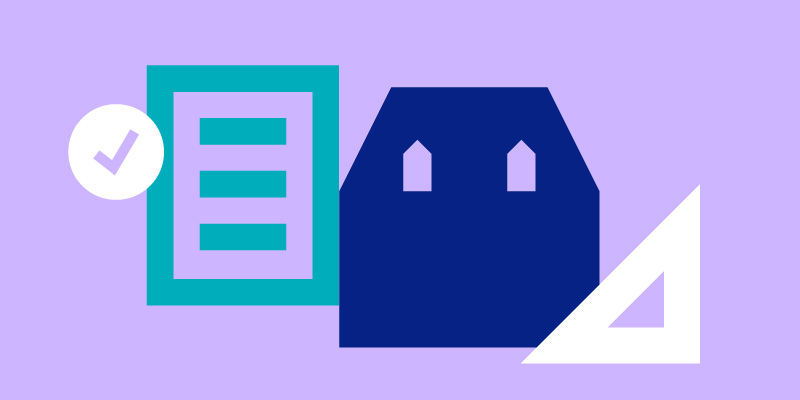
» Your Best Home Buying Checklist
April 9, 20201. Determine How Much Home You Can Afford
The best way to start your home buying process is by determining your budget. After all, this progression can be complex enough without looking at homes that are outside your price range. And who wants to fall in love with something that’s unattainable?
By identifying a realistic budget, you can embark on your search with a firm understanding of your price range.
First you’ll need to determine your debt-to-income (DTI) ratio, which is just what it sounds like — your monthly expenses versus your monthly cash intake. This includes all the bills you have to pay, divided by your gross monthly income. When you consider your debts, include any recurring bills, such as student loans, car payments, and child support payments— anything that you pay on a monthly basis.
In order to secure a qualified mortgage from most lenders, your DTI should be no higher than 43%. But, remember that’s the “outside” number you can spend — and doesn’t mean that you necessarily should. Have you ever heard of being “house poor”? That means that you spent so much money on your home that you don’t have funds left over for activities, such as eating out or traveling, or even the many expenses that will come on top of your mortgage. You’ll want to budget for the fun stuff, like furniture, fresh paint, and plants for your new patio pots, but also the “unfun” stuff that inevitably comes along with homeownership, such as routine maintenance and even unexpected big-ticket items like a new hot water heater.
2. Save For A Down Payment
Your mortgage payment is only one piece of the puzzle. It’s also important to save up so that you can make a sizeable down payment, which will save you a good chunk of money over the life of your loan. Here’s how:
- A bigger down payment will often result in a lower interest rate; that’s because a lower “loan to value” (LTV) decreases your lender’s risk.
- The bigger the initial payment against principal, the less interest a borrower will pay over the life of the loan, potentially saving thousands of dollars.
- A bigger down payment results in smaller monthly payments because there’s that much less that you owe on the house.
- Smaller monthly payments could positively influence future borrowing power, which means you’re more likely to qualify for a car loan, credit or other financing.
Knowing that a bigger down payment will result in paying less over the life of your loan can make it less painful to save. Not sure where to start? Here are some ideas:
- Build a budget. It’s hard to save money when you don’t even know where it’s going. By developing a budget and tracking your outflow, it’s easy to see where you can plug the holes — perhaps by eating out less or putting a moratorium on online shopping.
- Set up automatic savings. You’ve heard the adage “pay yourself first.” By setting up automatic savings through your bank account, it can be easier to save that money because you’ll never even see it.
3. Find A Real Estate Agent You Can Trust
While you might want to do some looking on your own, whether you’re browsing online listings or attending open houses, it’s in your best interest to find a trusted real estate agent. They do far more than scout out prospective homes.
Lean on them for everything from information about the market — such as whether an asking price is appropriate and which are the up-and-coming neighborhoods — to financial know-how, such as where to look for a mortgage and what pre-approval amount to request for a particular purchase offer.
An agent will be your ally in sizing up the pros and cons of various homes and can even offer interior design advice. In short: A good agent is imperative to guiding home buyers through many of the later steps on the home buying checklist. They are the ones “on your side” watching out for your best interest.
4. Find The Perfect Home For You
Well, finally we got to the good part, right? Of course, this is a matter of opinion. For some home buyers, this step can be overwhelming. That’s why it’s smart to ask your real estate agent to weigh in. They often can offer advice on subjects that you might not have considered, such as whether the home is in the right school district for you or if it’s been on the market a while (and therefore might have a potentially anxious seller who’s ready to deal).
But make sure to do your own looking, too, by checking out homes online and visiting them to get a better sense of your own tastes and needs. The options are limitless; you can drive around to find appealing homes in your neighborhood of choice, or use one of the many house hunting sites available to find possibilities.
As with any decision-making process, the more data you have the better, so use every tool at your disposal to effectively hunt for the homes in your price range.